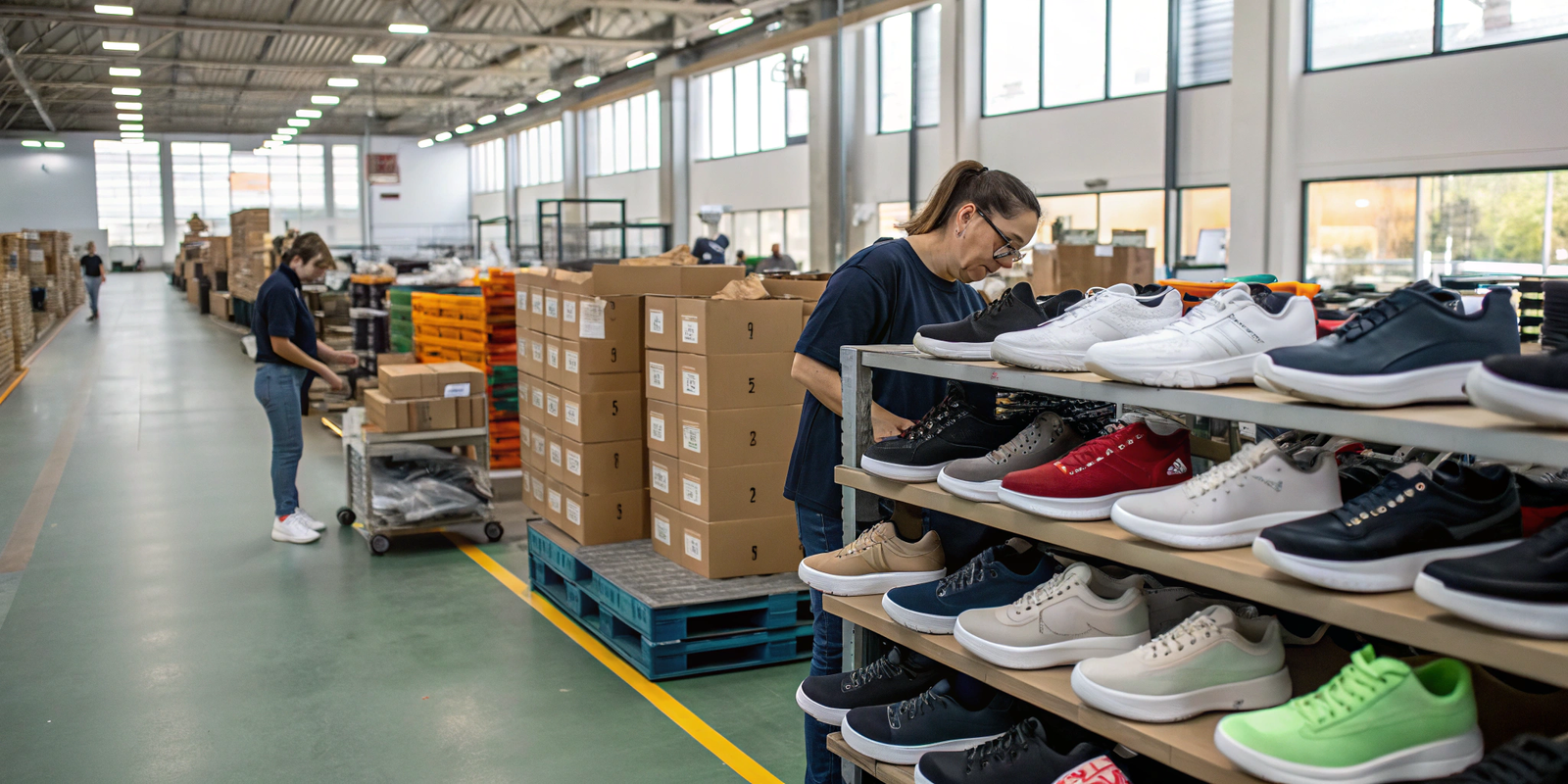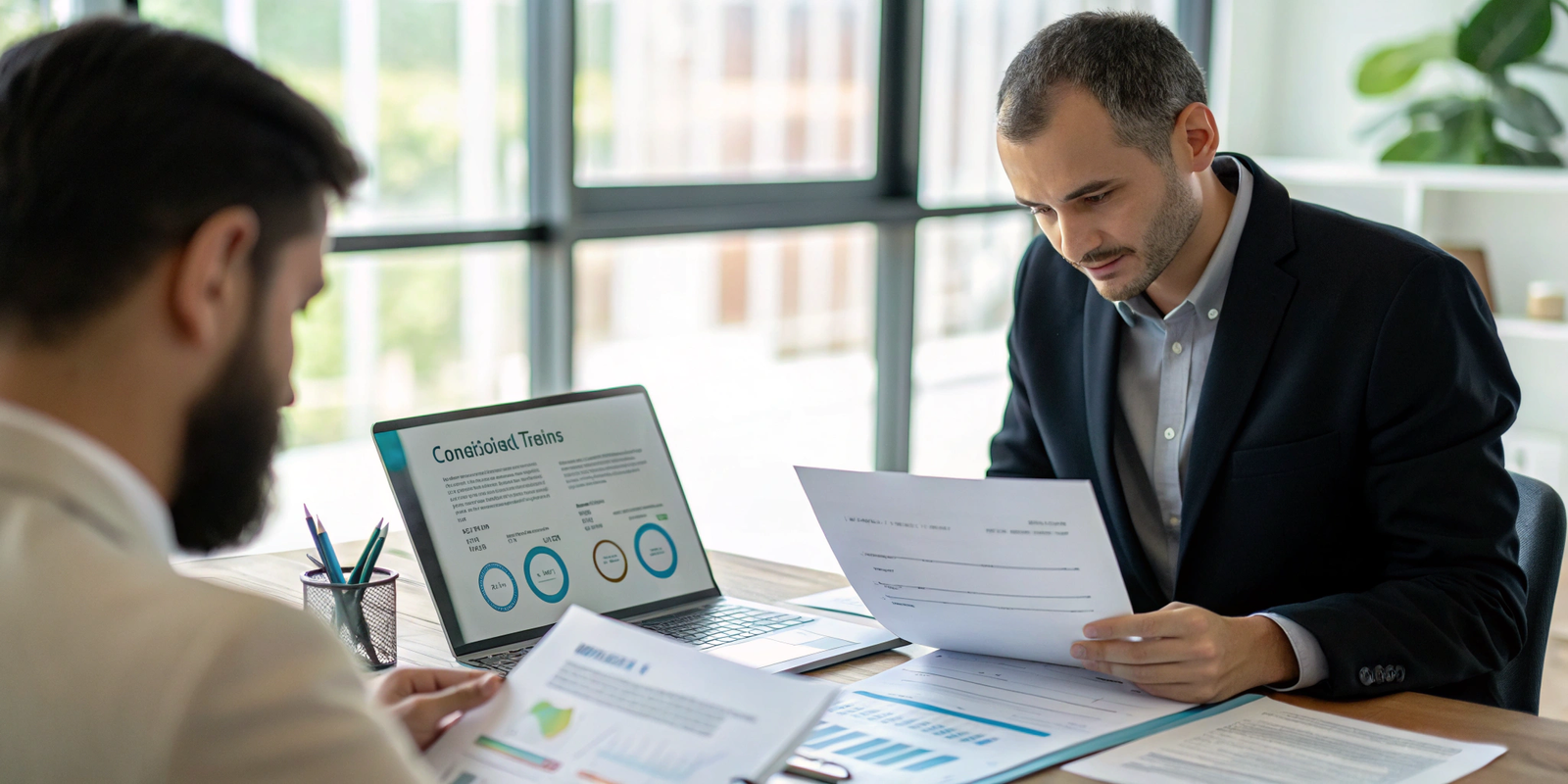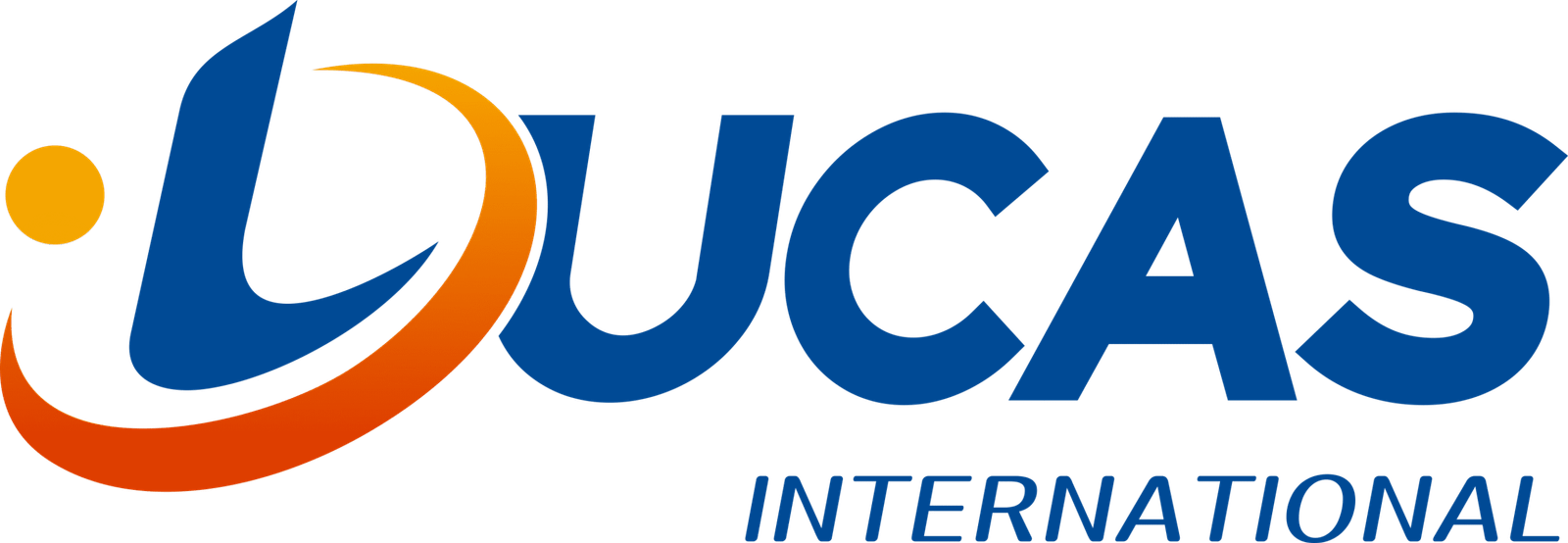Are you looking to make your shoe supply chain more eco-friendly? Sourcing sustainable shoes in bulk can be tricky if you do not know where to start.
Sourcing sustainable shoes in bulk requires finding reliable suppliers, checking for essential certifications like GRS or GOTS, and verifying their sustainability claims through audits, transparency reports, and direct factory visits.
 In my 20-plus years in the footwear industry, especially with Lucas, I have seen a massive shift. What used to be a niche request for "eco-friendly" options is now a mainstream demand. Everyone from small brands to large retailers wants sustainable products, and for good reason. Early on, navigating this landscape felt like the Wild West. Now, with more awareness and established standards, it is certainly more manageable, but still requires diligence.
In my 20-plus years in the footwear industry, especially with Lucas, I have seen a massive shift. What used to be a niche request for "eco-friendly" options is now a mainstream demand. Everyone from small brands to large retailers wants sustainable products, and for good reason. Early on, navigating this landscape felt like the Wild West. Now, with more awareness and established standards, it is certainly more manageable, but still requires diligence.
Where can I find reliable sustainable shoe suppliers?
Are you struggling to locate trustworthy partners for your sustainable footwear needs? Finding the right supplier is the first critical step in building an ethical supply chain.
Reliable sustainable shoe suppliers can be found through specialized B2B platforms, industry trade shows focusing on sustainability, direct outreach to certified factories, and leveraging networks within sustainable fashion communities for vetted recommendations.
 When we first started exploring sustainable manufacturing at Lucas, the biggest challenge was finding partners who truly shared our vision. It is easy for a factory to claim they are "green," but verifying that takes work. Over time, I have found that a multi-pronged approach yields the best results. You need to look in various places and cross-reference information.
When we first started exploring sustainable manufacturing at Lucas, the biggest challenge was finding partners who truly shared our vision. It is easy for a factory to claim they are "green," but verifying that takes work. Over time, I have found that a multi-pronged approach yields the best results. You need to look in various places and cross-reference information.
Finding reliable sustainable shoe suppliers for bulk orders requires strategic investigation and networking:
- Specialized B2B/Sourcing Platforms Focused on Sustainability: Many online platforms now specifically cater to sustainable and ethical sourcing. Websites like "Common Objective," "SourceMyGarment," or "Textile Exchange" often list suppliers who have been pre-vetted for certain sustainability criteria or certifications. These platforms serve as a directory and often provide preliminary information about a supplier's practices, materials used, and certifications held. They can save you significant time in the initial filtering process. I have found these platforms particularly useful for discovering smaller, specialized factories that might not be on the general radar.
- Industry Trade Shows and Conferences (Sustainability Focus): Attending trade shows that specifically highlight sustainable fashion and footwear is invaluable. Events like "Neonyt" (Europe), "Future Fabrics Expo" (UK), or specialized sections within larger shows like "Copenhagen Fashion Summit" allow you to meet suppliers face-to-face. You can discuss their practices, inspect material samples, and build direct relationships. These shows often feature panels and workshops that provide deeper insights into sustainable practices and connect you with thought leaders in the field. I make it a point to visit these events regularly to meet new potential partners and stay updated.
- Direct Outreach to Certified Factories (e.g., GRS, GOTS, BCI listed): Once you understand the key sustainability certifications (which we will discuss next), you can directly search for factories that hold these certifications. Many certification bodies maintain a public database of certified facilities. For example, if you are looking for GRS-certified recycled material production, you can search the Textile Exchange database. Contacting these factories directly ensures you are reaching out to a supplier already committed to specific standards. At Lucas, being a BCI member and having GRS certification means we are often found through these channels, which gives our partners confidence.
- Networking within Sustainable Fashion Communities: Connect with other brands, designers, and consultants in the sustainable fashion space. Referrals from trusted sources can be incredibly valuable. Ask for recommendations from brands that have successfully integrated sustainable practices into their supply chains. Forums, LinkedIn groups, and professional associations focused on ethical sourcing are great places to start these conversations. Personal recommendations often lead to the most reliable and aligned partnerships. This kind of networking has been vital for Lucas in finding and vetting our own partners over the years.
What certifications should I look for in sustainable footwear? Are you confused by the jargon and various labels in sustainable footwear? Certifications are your guide to truly ethical and eco-friendly products. Look for certifications such as Global Recycled Standard (GRS) for recycled content, Global Organic Textile Standard (GOTS) for organic materials, Leather Working Group (LWG) for responsible leather production, and ethical manufacturing audits like BSCI or SEDEX.
When I first started to integrate sustainable practices into Lucas, the number of certifications was daunting. It felt like learning a new language. But I quickly realized that these certifications are not just labels; they are rigorous standards. They provide transparency and accountability. They are crucial for verifying a supplier's claims.
When sourcing sustainable footwear, key certifications provide independent verification of a supplier's commitment to environmental and social responsibility:
- Global Recycled Standard (GRS): This certification is essential if you are buying shoes made with recycled content. GRS verifies recycled content (pre-consumer and post-consumer) in materials. It traces the material from the recycler to the final product. It also addresses processing, manufacturing, chemical use, and social and environmental practices. This ensures that the "recycled" claim is legitimate and comes from a responsible supply chain. We are proud to hold GRS certification for relevant lines at Lucas.
- Global Organic Textile Standard (GOTS): If your shoes or shoe components (like uppers or linings) use organic cotton or other organic fibers, GOTS is the gold standard. It certifies the organic status of textiles from harvesting of the raw materials, through environmentally and socially responsible manufacturing, and clearly labels the finished product. This ensures that the materials are truly organic and processed ethically.
- Leather Working Group (LWG): For shoes using leather, LWG certification is crucial. It assesses the environmental performance of tanneries. This includes energy consumption, water usage, waste management, and the use of restricted substances. LWG accreditation signals that the leather used in your shoes comes from responsible sources. This certification helps address the environmental impact often associated with traditional leather production.
- Business Social Compliance Initiative (BSCI) / Sedex Members Ethical Trade Audit (SMETA): These are not material-specific but focus on the social aspects of sustainability. BSCI and Sedex are leading initiatives for improving working conditions in global supply chains. They conduct audits to ensure fair labor practices, safe working environments, and ethical treatment of workers. Looking for suppliers with BSCI or Sedex certification (like Lucas) ensures that the shoes are not only environmentally friendly but also made under ethical labor conditions. This is fundamental to our people-first values.
- Responsible Down Standard (RDS) / Responsible Wool Standard (RWS): If your footwear includes down or wool insulation, look for these certifications. RDS ensures that down and feathers come from animals that have not been subjected to unnecessary harm. RWS certifies that wool comes from sheep that have been treated responsibly and managed their land sustainably. These certifications extend ethical considerations to animal welfare within the supply chain.
- Forest Stewardship Council (FSC): For any paper or wood-based materials in your packaging or shoe components (like certain insoles), FSC certification is important. It ensures that products come from responsibly managed forests that provide environmental, social, and economic benefits.
How do I verify a supplier’s sustainability claims?
Are you seeing a lot of "green" claims but want to ensure they are legitimate? Verifying a supplier’s sustainability claims is vital for genuine ethical sourcing.
Verify a supplier's sustainability claims by requesting and examining their valid certifications, reviewing their transparency reports, conducting third-party audits of their facilities, and ideally performing personal factory visits to witness practices firsthand.
 Trust, but verify – that is a saying I live by, especially in this industry. It is not enough for a supplier to just tell you they are sustainable. You need proof. At Lucas, we understand this. That is why we welcome scrutiny and are transparent with our certifications and practices. It builds confidence.
Trust, but verify – that is a saying I live by, especially in this industry. It is not enough for a supplier to just tell you they are sustainable. You need proof. At Lucas, we understand this. That is why we welcome scrutiny and are transparent with our certifications and practices. It builds confidence.
Verifying a supplier's sustainability claims requires proactive steps to ensure their practices align with your ethical and environmental standards:
- Request and Examine Certifications: The first step is always to ask for proof. Do not just take their word for it. Request copies of all relevant certifications (GRS, GOTS, LWG, BSCI/SMETA, etc.). Crucially, check the validity and scope of these certifications. Verify the certificate numbers on the issuing body's database. Does the certificate cover the specific product or process you are sourcing? Does it list the correct factory location and product type? A legitimate supplier will be happy to provide these documents and help you verify them.
- Review Transparency Reports and Impact Assessments: Many genuinely sustainable factories and brands publish annual transparency reports. These reports detail their environmental footprint (e.g., carbon emissions, water usage, waste generation) and social impact (e.g., worker wages, safety incidents). Look for specific data, goals, and progress made. Vague statements without data are red flags. See if they conduct Life Cycle Assessments (LCAs) for their products, which analyze environmental impacts from raw material extraction to end-of-life.
- Conduct Third-Party Audits: If you are dealing with significant volume or building a long-term partnership, arrange for an independent third-party auditor to visit the factory. These auditors can assess environmental management systems, chemical management, waste disposal, water treatment, and labor practices. They can verify if the factory adheres to international standards and their stated sustainability claims. This goes beyond simple certification checks and provides a deeper, independent assessment.
- Perform Factory Visits (In-Person or Virtual): The most direct way to verify claims is to visit the factory yourself or send a trusted representative. While a virtual tour can offer some insights, nothing beats seeing the operations firsthand. Observe working conditions, waste management processes, energy efficiency measures, and material storage. Talk to workers (if possible and appropriate) to gauge labor conditions. This direct observation helps you see if their day-to-day operations match their claims and certifications.
- Request Detailed Material Traceability and Supply Chain Mapping: A truly sustainable supplier should be able to map out their supply chain for you – not just their own factory, but where they source their raw materials. Ask for proof of origin for recycled content, organic fibers, or ethical leather. The more transparent they are about their sub-suppliers, the more confident you can be in their overall sustainability efforts. This "chain of custody" is vital.
By combining these verification methods, you can build a robust understanding of a supplier's genuine commitment to sustainability and ensure your bulk orders align with your ethical values.
Sourcing sustainable shoes in bulk demands a meticulous approach: find suppliers through specialized platforms and trade shows, prioritize those with certifications like GRS, LWG, or BSCI, and always verify their claims rigorously through audits and factory visits.
